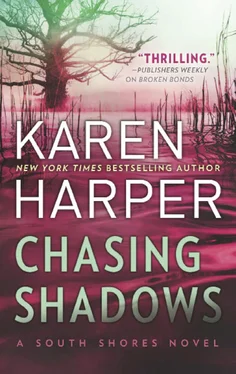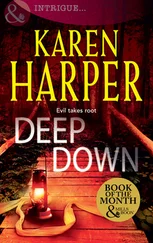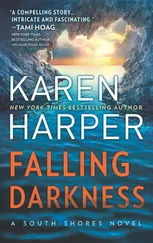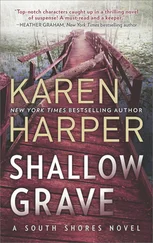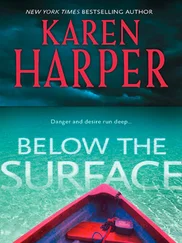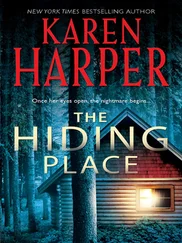They had her sitting up in the hospital bed. No cast, since the bullet had missed her bone. Only one of the three major upper arm muscles had been impacted. In the ER while she was sedated, they’d given her a transfusion, probed for and extracted the bullet, irrigated the wound and put her back together with some sort of blue adhesive and a bandage, all supported by a pink sling, no less. The doctor had said her skin would get sticky and itchy but should heal well.
“I see you’ve finished your breakfast. Feeling reasonably okay?” the nurse named Mandy said as she swung the tray table aside and took Claire’s temperature again with an electronic thermometer. Why did doctors, nurses and dentists always start to chat or ask a question when they had something in your mouth?
“Mm-mm,” Claire said.
“Good. We gave you a tetanus booster in your right arm if that’s a bit sore. Sometimes in the panic and pain in the ER, memories can be strange and I know you missed your dosages of meds before we realized you were narcoleptic. You really should wear a bracelet with that info. Your sister had to tell us, you know.”
“Mm-mm.”
Actually, that was a good suggestion, so maybe something positive would come from this mess. She’d been so sedated that she didn’t recall much either from the ER or last night. But she didn’t want to be explaining to people what a NARC bracelet around her wrist meant. The fewer people who knew she was narcoleptic, the better. Thank heavens, she hadn’t had one of her terrible dreams from being even slightly off her meds but she just bet it was the hospital sedation that had saved her from that. Regularity of her meds, her naps and daily stimulants were essential.
Taking the thermometer out of her mouth and squinting at it, Mandy said, “Good, no fever. Now, before we release you later today, I want to warn you not to be upset by major bruising. Your skin will be black and blue like crazy, following lymphatic channels under the skin, maybe looking like a series of stripes.”
Claire heaved a huge sigh. “A small price to pay, considering my client was killed. He’s Jewish, so his wife will want to bury him soon. He has two adult children. I’m so sorry for all of them.”
“They won’t be burying him before the next sunset. An autopsy. Standard procedure for a—a tragedy like this.”
Claire nodded and sniffed back the urge to cry, for Fred, for herself. Dreadful, the thought of a physical autopsy, instead of the psychological ones she specialized in.
Someone called out in the hall, and she jolted. Pain shot into her shoulder. That sound was hardly like a gunshot, but it brought it back. But no way was she going to suffer from post-traumatic stress disorder, not with everything else she’d been through.
She asked Mandy, who was typing into her small laptop, “Do they know if I’ll need physical therapy to get everything working again?”
“To be decided in a week or so. The Tylenol 3 with codeine you’re on should handle the pain if you don’t use the arm much, but Dr. Manning has also written a prescription for stronger stuff, should you need it. With the powerful meds you take, remember, use the stronger pain meds sparingly, if possible. And no driving for a while.”
Claire sighed again. “I’m used to that, off and on, though I’ve been cleared to drive again recently since I have my narcolepsy meds calibrated just right. Cab fares add up. I can’t have my family always running me around as if I were a kid. And, yes, I’ll be careful. Believe me, I always am. I was just in the wrong place at the wrong time. I think the shooter meant to hit Fred, or even someone else nearby.”
“I think that’s what you told the officer who questioned you last night.”
“Oh, right. That’s vague, but I remember it. Not the same man who was guarding my door. It was a detective working on Fred’s murder. I wish I could have helped him.”
“If you don’t mind me asking—well, I’ve never come across someone with narcolepsy before, only read about it in textbooks. The meds keep it under control? Do you have cataplexy, too, lose muscle control when you wake up or get emotional? Do you think that’s why you fell to the ground so fast?”
“I have mild cataplexy that’s controlled by one of my medications. I think I fell to the ground because the bullet spun me around—maybe instinct to get down. Unless I get overly tired or overly excited, the meds plus a mini-nap or two and stimulants like caffeine, even in the form of chocolate, work wonders. I’ve had the disease since eighth grade, and it took a while for it to be diagnosed. It was really hard going when I was a kid. I had terrible nightmares, actually thought I was haunted by ghosts. People thought I was lazy or stupid. I took some ribbing—bullying.”
“I’ll never understand cruel people. I think they’re insecure and strike out at others to make themselves feel better, stronger than someone else.”
“I usually hide my disease from people, because it’s hard for people to trust you when they expect you to just fall asleep at any moment—be out of it,” she admitted, more to herself than to Mandy. Here she was talking freely with a nurse about the nightmare of her life, and she’d kept it from her own husband. She pictured Jace—the handsome blond, athletic, perfectionist Jason Andrew Britten—shouting and stomping around when he finally found her stash of hidden meds and learned what they were for.
“Sorry,” Mandy said. “That must have been really tough.”
Claire whispered, “I never expected to end up in the hospital where my diagnosis would matter. It helps now, to talk about it with someone—someone who understands, like the doctor who eventually helped me. My sister and parents knew, too, but no one else.”
Mandy patted her good shoulder and they were silent for a moment. “By the way,” Mandy said, “there’s major coverage of the shooting on TV and in the papers, even national. It’s in USA TODAY and I caught a story on Good Morning, America before I left the house. ‘Fatal courthouse shooting... Man supposed dead for two years now out of the grave and into prison for fraud,’ that kind of thing. What a way to be famous, huh?”
Claire just rolled her eyes. Suddenly, they were the only part of her that didn’t feel sore. “Is the police officer still outside my door?” she asked as Mandy typed something else into her laptop.
“A new one this morning. Just until they catch the killer,” she said as she went out and left the door ajar.
The killer. She’d been shot by a killer. Hard to believe. Poor Fred and his family. But had one of Sol Sorento’s family been the shooter? Of all the interviews she’d done to try to figure out if Sol was dead or alive, not one of his family or friends had seemed like a killer, even if some of them were temperamental and deeply distressed. But losing hope of a fortune, with Sol going to prison and others up for perjury, their lives ruined, who knows that desperate people couldn’t turn deadly? But that was all she’d been able to give the detective when he’d questioned her.
A knock on her door interrupted her agonizing. A middle-aged, bald and bulky officer stood there with a huge bouquet of red roses in his hands. “For you, with a visitor, if you’re up to it, Ms. Britten,” he said. “It’s been cleared.”
Her first thought was that Darcy and Steve should not have bought expensive roses, even if they were supposed to be from Lexi. Maybe they’d even brought Lexi! Surely, Jace hadn’t sent the flowers, though Darcy said she’d call him.
“Yes,” Claire told him. “Yes, of course, they can come in.”
But it wasn’t her family. It was a senior partner of Markwood, Benton and Chase, Attorney Nick Markwood, not decked out in his lawyer suit but in gray casual slacks and a bright blue golf shirt. He took the roses from the cop and came in to sit in the chair beside her bed, laying the bouquet beside her sheet-covered leg. Like an idiot, she hoped her hair looked okay. At least she had a robe over this stupid-looking hospital gown.
Читать дальше
